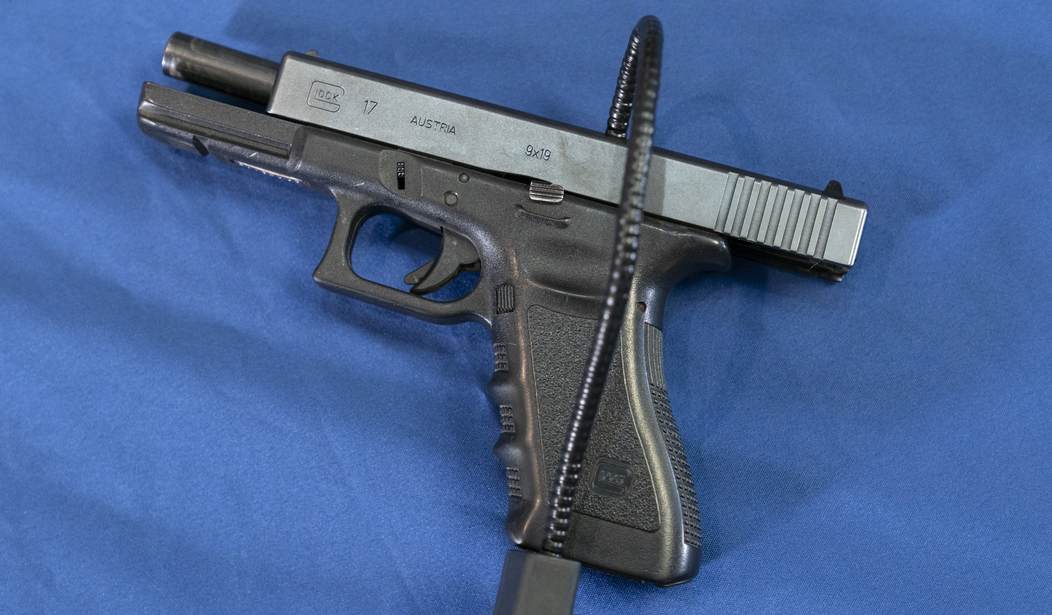I refuse to call any law that requires you to lock your guns up a "safe storage law." It's nothing of the sort, despite all the claims proponents want to throw at people. It's not "safe" because it doesn't account for literally anything else except what some lawmakers think is absolutely vital.
You see, a gun that's locked up when you need it may well not be available in time for you to use it. If you have your guns for self-defense purposes, then you have a problem.
Yes, I think guns should be secured when not in use, but mandatory storage laws determine what "in use" means and don't care what you think.
And why is that a problem? Well, a letter to the editor of the Washington Post, responding to a story someone wrote about the time they almost had to use a firearm, talks about why.
The author described his struggle with the Smith & Wesson internal locking system on his gun. This mechanism was the result of a consent agreement between the company and President Bill Clinton’s Justice Department. First included in weapons manufactured in 2001, the system is an internal trigger lock controlled by a very small key inserted in the side of the revolver.
Though intended to make guns safer, the locks fail the test no matter how one views guns. For those who believe guns can play an important role in self-defense, the locks mean delay and lack of emergency access. By the time the author retrieved the key and his glasses and found adequate lighting to defeat the lock, a “real” bad guy could have easily beaten the author to death with any convenient blunt object.
From the perspective of gun-control advocates, trigger locks save lives. But that’s if and only if they cannot be defeated by unauthorized users. I am an experienced revolversmith. I can defeat the system without a key in under 10 minutes, if I’m working carefully. A less careful criminal in a hurry would need only $5 or a small screwdriver and three minutes to accomplish the same feat. Keys are available online at the low rate of two for $9.99, no proof of permit required. And the lock is simple enough that a smart, motivated 10-year-old could find the gun and a parent’s key ring, and unlock the firearm. Fortunately, Smith & Wesson does ship every revolver with a separate cable and padlock. Parents who use these additional security measures will find that their firearm is safer and less accessible to children than if they merely relied on the internal locking system.
Those cable locks may well be more accessible, but we also need to remember that when your adrenaline has kicked in, fine motor skills go out the window. That includes using keys or combination locks.
For most people, it wouldn't actually matter. You're never likely to need that gun for self-defense. Statistically, most of us won't, and that's a very good thing.
The problem is that there's someone out there, possibly reading this, who will.
We don't have guns because we expect to be the victim of a violent crime but because we don't want to be. Yet most of us are more fortunate than others. It'll never be a thing.
For those who aren't so lucky, though...
Picture this, for a moment. You and your family are snug in bed at home. You know there have been a series of home invasions in your community--violent ones--but you've got your firearms. You've complied with all the laws, but you also have the keys to the gun lock handy.
The crash of glass wakes you in the wee hours of the morning and you realize what's happening. Yet, in compliance with relevant laws--laws favored by anti-Second Amendment politicians--your guns are locked up and your ammo is stored elsewhere, also locked up. You start fumbling with your keys as you hear footsteps coming up the stairs. They're not sneaking, either.
Just as you start to get the gun unlocked, the bedroom door crashes open.
Are you remotely ready to defend yourself?
Of course not.
This particular story assumes you'll be able to avoid the fumbling enough to get the gun out almost in the nick of time for dramatic purposes. You might get it open sooner and be good to go and you might not.
Couple it with the demand that ammo be locked away separately and you start to see the problem.
Mandatory storage laws don't keep people safer. It may well endanger them instead.








Join the conversation as a VIP Member